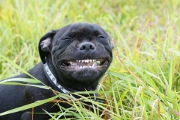 Aside from being important for eating and ingesting nutrients, an animal’s mouth is also used for grooming and manipulating objects. Dogs and cats don’t have opposable thumbs and fingers, so they rely on their mouths to move stuff around.
Aside from being important for eating and ingesting nutrients, an animal’s mouth is also used for grooming and manipulating objects. Dogs and cats don’t have opposable thumbs and fingers, so they rely on their mouths to move stuff around.
Raising a dog or cat on a raw diet and feeding raw bones regularly are the best things you can do to keep your pet’s teeth and gums healthy. If you have an animal who is older and who was not fed a natural diet, you will have a harder time treating dental problems, but there are still things you can do to help.
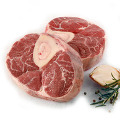 In general, cats tend to have fewer dental problems because they haven’t been bred the same way dogs have. Many dogs with mutations have been purposely bred because people liked the look. Short muzzled breeds are an example. Cats still get dental problems, though, from an improper diet, specifically, from years of eating commercial pet foods.
In general, cats tend to have fewer dental problems because they haven’t been bred the same way dogs have. Many dogs with mutations have been purposely bred because people liked the look. Short muzzled breeds are an example. Cats still get dental problems, though, from an improper diet, specifically, from years of eating commercial pet foods.
There are four main categories of dog and cat dental problems.
We’ll address each separately.
Congenital Disorders
These are problems that an animal is born with. They are very common in dogs because there are many breeds that have an unnatural mouth. By unnatural, we mean intentionally modified away from the evolutionary canine because of human fancy and the human’s desire for a certain look in a dog.
Very small breeds are often saddled with an overcrowded mouth, and with teeth that overlap. 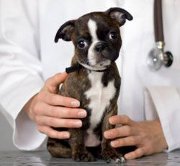 Some dog breeds have either a too short or a too long jaw. Bulldogs, pugs, Boston terriers, and other such breeds have jaws so unnaturally short that their teeth often don’t fit properly and will spill out sideways.
Some dog breeds have either a too short or a too long jaw. Bulldogs, pugs, Boston terriers, and other such breeds have jaws so unnaturally short that their teeth often don’t fit properly and will spill out sideways.
If you have a breed like this, and it is still young, you ought to discuss the option of having some of the teeth pulled out with your holistic veterinarian. This can avoid serious dental problems down the road.
Another common congenital dental disorder is having one jaw shaped differently than the other. When this happens, the teeth don’t line up properly, which makes chewing difficult, and which can cause an eventual breakdown of the teeth and gums, which is not only painful but can also inhibit proper digestion of nutrients when the discomfort becomes too great. In his book, Dr. Pitcairn’s Complete Guide to Natural Health for Dogs and Cats, Dr. Richard Pitcairn recommends having some of a young animal’s baby teeth extracted before the permanent teeth come in if the difference in the jaws is ¼” or less.
Dr. Pitcairn prescribes the homeopathic treatment Calcarea carbonica 30c once daily for three days to help, but we advise that you see a homeopathic veterinarian before attempting to treat a dental problem on your own.
Unfortunately, the best recourse for an overcrowded mouth is usually dental extraction.
Accidents
Dogs and cats may lose or damage their teeth if they get hit by a car or suffer some other sort of accidental blow. Obviously, you need to take your pet to a veterinarian immediately when an accident occurs. 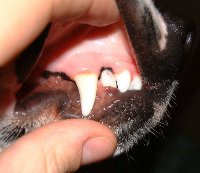 If a tooth has been broken but is still firmly lodged in the mouth, it is sometimes okay to leave the broken tooth alone. It is always wise to get at least two professional opinions. If the root has been damaged, an abscess or infection may develop, and the tooth will need to be extracted.
If a tooth has been broken but is still firmly lodged in the mouth, it is sometimes okay to leave the broken tooth alone. It is always wise to get at least two professional opinions. If the root has been damaged, an abscess or infection may develop, and the tooth will need to be extracted.
If the gums are injured and inflamed, Arnica 30c can help with pain and inflammation. Give one or two tablets every four hours with no food or drink for a fifteen minute period around the dose. Do this for a couple of days.
If gums are injured and have been bleeding, calendula tincture is often used to stop bleeding and speed healing. Apply it directly to the injured gums with a soaked cotton swab, or flush using a plastic syringe or chicken baster.
Periodontal Disease
Periodontal disease results from a buildup on the teeth, and is extremely common. The buildup is called calculus and it’s comprised of calcium salts, 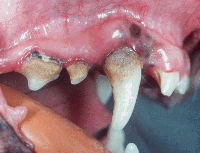 food, hair, and bacteria. This buildup gets hard and puts pressure between the teeth and gums, creating a gap between them and causing recession of the gums. Symptoms include visible buildup, bad breath, difficulty chewing, perhaps tilting the head while chewing, excessive salivation, and bleeding gums. Later stage symptoms are severe, hard, and brown buildup, and possibly loss of appetite and weight loss.
food, hair, and bacteria. This buildup gets hard and puts pressure between the teeth and gums, creating a gap between them and causing recession of the gums. Symptoms include visible buildup, bad breath, difficulty chewing, perhaps tilting the head while chewing, excessive salivation, and bleeding gums. Later stage symptoms are severe, hard, and brown buildup, and possibly loss of appetite and weight loss.
Causes include improper diet, misaligned teeth, overfeeding, lack of appropriate things to chew on, and excessive snacking.
Herbal and Naturopathic Help
You can prevent periodontal disease by feeding a raw, well-balanced, natural diet, and by giving raw bones regularly. See the Bones section for more information. In addition to exercising and cleaning the mouth, bones supply an optimal blend of calcium and phosphorus, as well as other minerals, and the cartilage is excellent for joint health. Do not feed cooked bones.
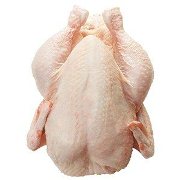 Calcium and other minerals are essential for proper tooth and bone development and health. Vitamin C is also good for the gums, as is CoQ10. Greens such as wheat grass, barley grass, rye grass, dandelion leaves, and green herbs are an excellent nutritional supplement that can be finely minced and added to your pet’s food.
Calcium and other minerals are essential for proper tooth and bone development and health. Vitamin C is also good for the gums, as is CoQ10. Greens such as wheat grass, barley grass, rye grass, dandelion leaves, and green herbs are an excellent nutritional supplement that can be finely minced and added to your pet’s food.
Spirulina is a single-celled algae which contains chlorophyll, protein, vitamins, and carotenoids. It also helps with the assimilation of Vitamin A. All of these are good for the teeth. Horsetail is an herb which helps support body tissues due to its high silica content. Silica supports healthy teeth, bones, claws, and fur.
If calculus has already gotten out of control, you really have no other recourse than to have a dental procedure done at your veterinarian’s office. This will require anesthesia. After any dental procedure, the gums will be very sore. Swabbing or rinsing with a solution of steeped Echinacea, goldenseal, myrrh, or plantain will help. Prepare the solution as you would a tea, 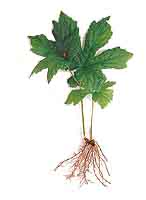 and steep it until it’s strong and cooled to room temperature. Soak a cotton ball to apply, or use a plastic syringe or chicken baster. In addition, vitamin E rubbed on the gums can be soothing and helpful in the post-procedural healing process.
and steep it until it’s strong and cooled to room temperature. Soak a cotton ball to apply, or use a plastic syringe or chicken baster. In addition, vitamin E rubbed on the gums can be soothing and helpful in the post-procedural healing process.
Echinacea tea is used to help heal gum infections, but please see a holistic veterinarian if you believe your pet’s mouth is infected.
Homeopathy
Give one or two tablets of Arnica 30c every four hours for a couple of days after a dental procedure. This will help to ease inflammation and discomfort.
Calcarea carbonica 30c, Calcarea fluorica 6c, Calcarea phosphorica 6c, Silicea 30c, and Silica 6c are homeopathics used to promote good dental health. Vaccinations often make mouth problems worse. Talk to a holistic veterinarian if you are concerned about this or any other pet health issue.
Tooth Decay
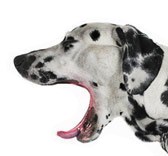 Tooth decay is similar to periodontal disease in that it is a very common problem and it’s caused by commercial pet foods. A raw, natural diet is the prevention, and veterinary surgery is really the only solution. See the Diet section, the section on bones, and the information, above, on periodontal disease for more information.
Tooth decay is similar to periodontal disease in that it is a very common problem and it’s caused by commercial pet foods. A raw, natural diet is the prevention, and veterinary surgery is really the only solution. See the Diet section, the section on bones, and the information, above, on periodontal disease for more information.
Toothpaste
 Just about every veterinary professional you meet will advocate brushing your pet’s teeth with a dog or cat’s toothpaste. We are holding off on endorsing those products because we don’t know enough about the long term effects. Manufacturers claim that they are safe, and they probably are. These toothpastes clean your pet’s teeth using enzymes, which your pet then digests. We’re not sure that the products have been on the market long enough to know if these enzymes have any long term adverse effects. You may want to do your own research on the subject.
Just about every veterinary professional you meet will advocate brushing your pet’s teeth with a dog or cat’s toothpaste. We are holding off on endorsing those products because we don’t know enough about the long term effects. Manufacturers claim that they are safe, and they probably are. These toothpastes clean your pet’s teeth using enzymes, which your pet then digests. We’re not sure that the products have been on the market long enough to know if these enzymes have any long term adverse effects. You may want to do your own research on the subject.